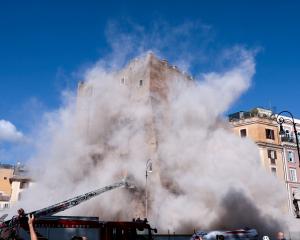Japan's cabinet has approved changes to a 66-year-old law that bans late-night dancing in clubs, a decision that will help businesses cash in on an expected influx of tourists ahead of the 2020 Tokyo Olympics.
Dancing at public venues is illegal in Japan and is only permitted until midnight under a special licence, in a holdover from a 1948 law to stamp out prostitution linked to dance halls.
The police stiffened enforcement of the rule four years ago, however, after a student was killed in a brawl in Osaka, Japan's second-largest metropolitan area, and worries grew about risks to young people against a backdrop of celebrity drug scandals.
"Visitors from overseas would come here to Japan and they'd wonder why they can't dance, even though you can dance at night anywhere overseas," said Kenji Kosaka, a member of the ruling Liberal Democratic Party (LDP) and head of an alliance of lawmakers for the promotion of dance culture.
"The biggest thing that will change in this law is that you can now dance at night."
The cabinet's decision must be ratified by parliament, but Kosaka said that should not be a problem as the LDP had a majority in both houses of Japan's Diet.
The changes clear the way for a new category of clubs where people can dance all night, but added requirements for better interior lighting.
The lighting must now be brighter than 10 lux, or about as much as in a movie theatre before a show starts, to discourage crimes and bad behaviour.
"The actual standard was dancing. Now that is changing to the level of lighting," said Takahiro Saito, a Tokyo-based lawyer who spearheaded a movement called "Let's Dance".
The easier rules should help bar owners such as Shuya Okino, who got rid of the dance floor at 'The Room' two years ago, after police stepped up crackdowns on Japan's nightlife.
"Everything is in a grey zone," said Okino. "It's all illegal, but there are clubs that do operate."
Television footage of police raids on clubs shows patrons being dragged out protesting they have done nothing wrong, while proprietors were charged with the crime of making people dance.
Police often used the existing law as a pretext to investigate problems such as boisterous clubbers, illegal drugs or suspected gangster involvement, so changing the rules may not end police intrusions into clubland.












